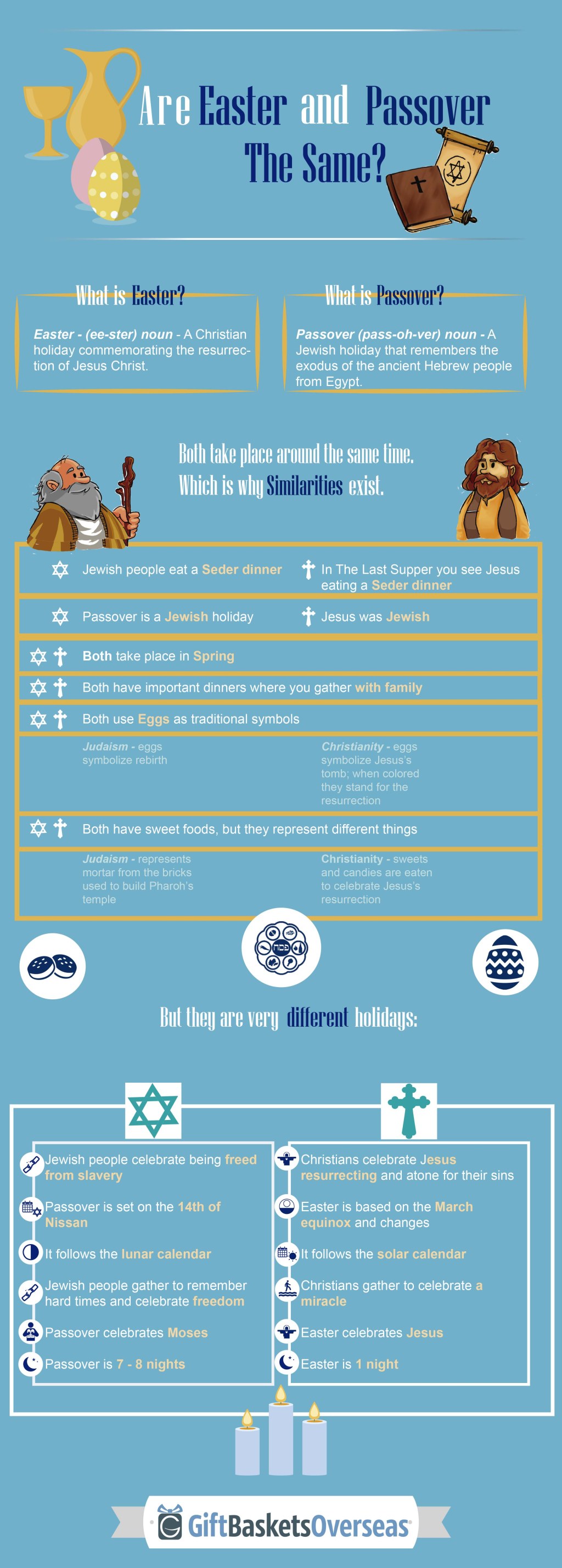Unlocking The Powerful Connections: Exploring The Similarities Between Ramadan And Easter
Similarities Between Ramadan and Easter
Greetings, Ramadhan enthusiasts! In this article, we will explore the similarities between Ramadan and Easter, two significant religious observances observed by Muslims and Christians respectively. Despite their differences in religious beliefs and practices, both Ramadan and Easter share commonalities that promote unity and understanding among individuals of different faiths.
2 Picture Gallery: Unlocking The Powerful Connections: Exploring The Similarities Between Ramadan And Easter


Introduction
Ramadan and Easter, although celebrated by different religious communities, are both occasions of spiritual significance and reflection. During these periods, individuals engage in acts of devotion, self-discipline, and communal worship. Let us delve deeper into the shared aspects of these two important religious observances.
What is Ramadan?

Image Source: giftbasketsoverseas.com
🌙 Ramadan is the ninth month of the Islamic lunar calendar and is considered the holiest month for Muslims. It is a time of fasting, prayer, and self-reflection. Muslims worldwide abstain from food, drink, and other physical needs from dawn until sunset during Ramadan.
Who Celebrates Ramadan?
🕌 Ramadan is observed by millions of Muslims around the world. It is a time of heightened devotion and spiritual reflection for individuals of the Islamic faith, regardless of their age, gender, or nationality.
When is Ramadan Celebrated?

Image Source: giftbasketsoverseas.com
🗓️ Ramadan is based on the Islamic lunar calendar, which spans 354 or 355 days. The specific dates of Ramadan vary each year, as it is determined by the sighting of the moon. This flexibility allows Ramadan to move forward approximately ten days every year.
Where is Ramadan Celebrated?
🕌 Ramadan is celebrated by Muslims worldwide. It is a global observance that transcends geographical boundaries, bringing together individuals from diverse cultures and backgrounds in the spirit of unity and devotion.
Why is Ramadan Celebrated?
🌙 Ramadan is celebrated to commemorate the revelation of the Quran, the holy book of Islam, to the Prophet Muhammad. It is a time for Muslims to seek spiritual purification, strengthen their relationship with God, and practice self-discipline and empathy towards others.
How is Ramadan Celebrated?
🌙 During Ramadan, Muslims engage in various religious practices, including fasting from dawn until sunset, performing additional prayers, reciting the Quran, and engaging in acts of charity. The breaking of the fast, known as iftar, is a communal gathering where family and friends come together to share a meal.
Advantages and Disadvantages of Ramadan
Advantages:
🌙 Spiritual Reflection: Ramadan provides an opportunity for individuals to reflect on their faith, seek forgiveness, and strengthen their spiritual connection.
🌙 Self-Discipline: Fasting during Ramadan fosters self-discipline and control over physical desires, promoting personal growth and development.
🌙 Empathy and Compassion: The experience of fasting encourages empathy towards those who are less fortunate and promotes acts of charity and kindness.
Disadvantages:
🌙 Physical Challenges: Fasting for long hours can be physically demanding, especially in regions with hot climates.
🌙 Sleep Patterns: Altering eating and sleeping patterns during Ramadan can disrupt daily routines and affect productivity.
🌙 Health Concerns: Individuals with certain health conditions may face challenges in fasting, and it is important to consult with medical professionals for guidance.
Frequently Asked Questions about Ramadan and Easter
Q: Is Ramadan the same date every year?
A: No, the dates of Ramadan vary each year as it is based on the lunar calendar.
Q: How long does Ramadan last?
A: Ramadan typically lasts for 29 or 30 days, depending on the sighting of the moon.
Q: Are there any specific foods associated with Ramadan?
A: While there are no specific foods associated with Ramadan, certain cultural dishes and traditions are commonly enjoyed during the month.
Q: Do children participate in fasting during Ramadan?
A: Children are not required to fast until they reach puberty, but they may engage in partial fasting or practice fasting for a few hours to gradually prepare themselves.
Q: Can non-Muslims participate in Ramadan?
A: Non-Muslims are welcome to join in the spirit of Ramadan by learning about the observance, supporting Muslims in their fasting journey, and fostering interfaith understanding.
Conclusion
In conclusion, Ramadan and Easter, although celebrated by different religious communities, share common themes of devotion, self-reflection, and community. Both observances provide opportunities for spiritual growth, empathy, and acts of kindness. By recognizing and appreciating the similarities between Ramadan and Easter, we can foster greater understanding and harmony among diverse religious communities.
Final Remarks
As we explore the similarities between Ramadan and Easter, it is essential to approach religious observances with respect and open-mindedness. This article aims to promote understanding and unity, recognizing the value that different religious traditions bring to the world. By embracing diversity and engaging in interfaith dialogue, we can build bridges of compassion and acceptance. Let us celebrate our shared humanity and strive for a world where tolerance and respect prevail.
This post topic: Ramadhan

